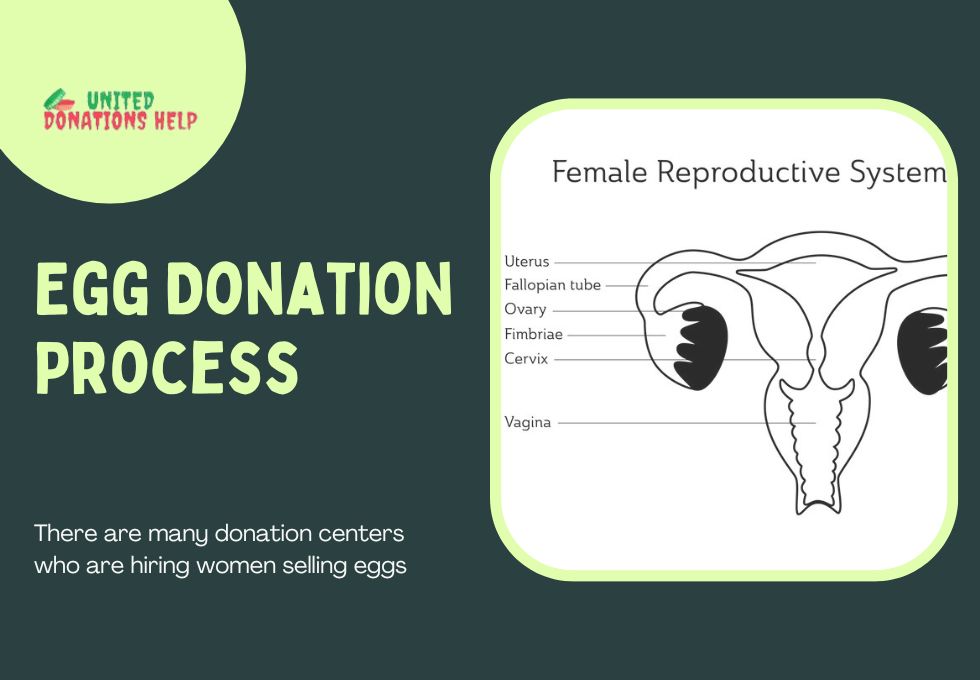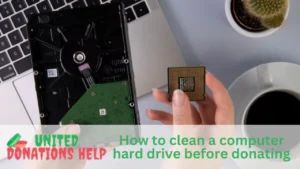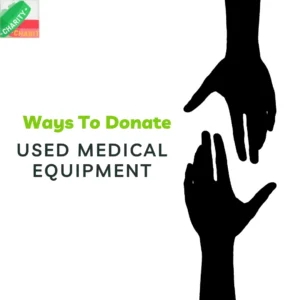Egg Donation Process : There are several causes you can think about giving your eggs. Some people choose based on money since they may receive a good reward for their donation. In fact you can even try selling your eggs. Others see it as the act of assisting a couple in having a child. And it’s possible for it to be both.
There are many donation centers who are hiring women selling eggs. Whatever your reason, the Center for Reproductive Health & Gynecology states that the egg donation procedure is reasonably simple and lasts for two months. You’ll utilise drugs to get your eggs ready for the egg operation once you’ve cleared the initial application and legal barriers. Continue reading to find out more about the egg donation technique, potential dangers, and preparation advice for before, during, and after the surgery.
When a woman gives her eggs, it helps another woman conceive as part of assisted reproductive technology or biomedical research. Due to poor egg quality brought on by older mothers, egg donation is most frequently used by single women and couples. The quality of a woman’s eggs decreases with age and sharply decreases after the age of 37.
Now we will tell you how to donate eggs.
Who Uses Egg Donation?
Now we are going to tell you about who uses the facility of donating eggs.
- couples who desire to conceive a child biologically utilising the male’s sperm but the lady has low quality or no eggs.
- Women with an intact uterus but no ovaries Women with hereditary conditions they don’t want to pass on to their offspring
- women who are older than 42
- When considering about employing an egg donor, there are numerous factors to take into account. If you have a partner, begin by talking about these issues.
What is The Process of Donating Eggs?
Now we are going to explain how to donate eggs. There is a long process of donating eggs. You can even try of selling your eggs. When a woman (the donor) donates her eggs to another woman (the recipient), the recipient can use those eggs to conceive a child. The donor must take drugs that will make her produce numerous eggs in a single cycle in order to donate eggs. The donor’s eggs are then extracted by inserting a needle with an ultrasonography probe attached through the vaginal tissues.
The eggs are then carefully suctioned (aspirated) out of the ovaries. An embryologist (a doctor) examines the eggs after they have been extracted. The next step involves surrounding or injecting each egg with sperm from the male spouse or a sperm bank. In vitro fertilization is the term for this procedure ( also called IVF).
Donating your eggs is a long process. In this, the egg donor will receive various injectable medications throughout their menstrual cycle. These medications then stimulate your ovaries to produce multiple eggs. Specific medications may include:
- Lupron (also called leuprorelin) controls certain hormone levels in your body.
- Cetrotide (also called cetrorelix) and Antagon (ganirelix), also known as GNRH antagonists, prevent eggs from being released from your ovaries.
- Follicle stimulating hormones help to create more eggs/follicles and help mature them.
Human chorionic gonadotropin (hCG), sometimes known as a “trigger shot,” will be administered to you first. The eggs will be taken out by a doctor during a process known as egg retrieval. An ultrasonography transvaginal gadget and a specific needle are used for this procedure. Your ovary is reached by inserting the needle through the wall of your vagina. Before fertilisation, the eggs are aspirated (sucked out) and given to an embryologist for analysis.
Egg Donor Requirements:
Donating your eggs needs a set of requirements. Please study the requirements below in order to donate eggs.
- between 21 and 31 years old
- physically sound
- a BMI of 19 to 29 (BMI Calculator)
- Non-Smoker
- have monthly, regular menstrual cycles
- avoiding birth control methods such as Depo-Provera shots, Mirena IUDs, and implants
- possess each ovary
- being in good mental health
- No use of psychotropic substances at this time
- no prior history of drug use
- There is no ancestry of genetic illnesses that are inherited
- ready to administer shots
- trustworthy, responsible, and able to keep appointments
- Some programmes give preference to women who have successfully given birth or donated eggs in the past.
Egg donor screening
A thorough screening procedure is provided by reputable organisations to reduce the possibility of congenital abnormalities and other issues. All this process is done in order to selling your eggs.
Guidelines are published by the U.S. Food and Drug Administration (FDA) to assist fertility clinics in determining an egg donor’s eligibility. The screening procedure for selling ovary eggs may contain some, all, or none of the following steps:
- physical examination conducted in person, over the phone, or as part of an application
- tests on blood
- a drug test
- medical and psychological history to learn about the donor and family’s medical history. ultrasound to evaluate the reproductive organs.
- screening for hereditary diseases and infectious diseases
Psychological Screening for Egg Donation Process
Both the donor and the recipient may feel strong emotions after making an egg donation. All participants in reputable egg donor programmes undergo a thorough psychiatric evaluation. To protect the wellbeing of any offspring and to make sure the donor is making an informed decision before starting the donation procedure, it is essential to assess the donor’s mental health.
What does being an egg donor entail?
The majority of egg donors experience minimal to no discomfort during their egg donation cycle, and those who do may experience mild symptoms that usually go away following the egg retrieval operation. Bloating, cramps, pressure, and swelling in the abdomen are possible side effects, all of which should subside once your next period begins.
The side effect of being an egg donor:
This medication’s adverse effects could include:
- a hot flash
- headache
- fatigue
- bodily pains
How does egg donation work?
Hormone injections are given to the egg donor to encourage multiple egg ovulation. The injections allow many eggs to grow at once in addition to the one egg that women naturally produce each month. Her fertility specialist schedules the surgery for when her eggs are developed and ready to be extracted.
A sedative is administered to the egg donor, and each mature follicle is punctured with an ultrasound-guided needle to extract each egg. The recipient’s partner’s sperm or chosen donor sperm will be used to try to fertilise multiple eggs in a lab. In vitro fertilisation is the process at hand (IVF).
- The recipient’s uterus is then used to receive an embryo (fertilised egg).
- In a fresh transfer cycle, medication is used to synchronise the cycles of the donor and the recipient.
- The embryos are often transplanted at a later date in a frozen transfer since they are frozen. In order to undertake preimplantation genetic screening for aneuploidy (an abnormal number of chromosomes), frozen transfers are occasionally used.
- Upon successful implantation, the embryo will grow into a healthy baby inside the uterus.
To donate eggs, you must contact an egg donation center. It is wise to refrain from sexual activity or use a barrier method of contraception like a condom because donors do run the chance of becoming pregnant before the eggs are collected. A donor will frequently have blood tests and ultrasound examinations throughout the donation cycle to track their responses to the drugs.
During extraction
The donor will get one last injection to get ready for the surgery just before the egg retrieval. The eggs will be extracted from the donor’s ovaries using a transvaginal ovarian aspiration. They will use a needle to extract the egg from each follicle after inserting an ultrasound probe into the vagina.
The doctor may administer sedatives, anaesthetics, or painkillers to the donor before the surgery, which takes around 30 minutes. A donor won’t need to spend the night at the clinic or hospital because this procedure is simple.
After donation
To recover following the transvaginal ovarian aspiration, some women discover they need to take several days off from work. Others resume their regular routines the following day.
While some programmes offer donors aftercare, others do not. Some women might find it helpful to engage with a counsellor or psychologist following the operation because the egg donation process can have a psychological impact.
Legal Implications for Egg Donors
The donation of eggs is not always legal in every nation. It is acceptable for women to give their eggs in the US, whether or not they do so secretly. Receiving cash in exchange for egg donation is also permitted.
All egg donors must sign a contract that guarantees they have no legal obligations to any subsequent offspring or embryos. This document will be required by egg donation clinics.
Legal records will list the woman who receives the egg as the birth mother even though she won’t be the child’s genetic relative.
Donor identity
Donors may remain anonymous in the US. They may also be acquainted with the recipient. Numerous egg donation schemes protect the donor’s anonymity. In other situations, the egg recipients will learn specifics about the donor but will not be introduced or given each other’s names.
If both sides agree, some programmes might allow donors and receivers to interact. Once the child reaches a particular age, recipients may in some cases allow the donor to get in touch with them. In other situations, the donor and the beneficiaries can already be acquainted. If a lady requests a friend or member of her family to contribute an egg, this happens.
Costs and donor payment
The cost of fresh egg donation in the United States is estimated by Parents Via Egg Donation, a global non-profit organisation, to be between $35,000 and $50,000 for an exclusive fresh cycle. This indicates that the recipients do not exchange eggs with other programme participants’ wives. A shared donor egg cycle starts out at about $18,000.
A lady might decide to use donor banks’ frozen eggs. In the United States, this normally costs between $16,000 and $20,000, although Europe offers far lower prices.
Usually, egg donors get paid for their time and labour. Payment is not contingent on success. Depending on the donation programme, the compensation varies greatly. The American Society for Reproductive Medicine’s Ethics Committee has determined that compensating women to donate their eggs is morally acceptable.
Final Words
A quick treatment with a high success rate is egg donation. It involves a doctor taking an egg from a donor who has been thoroughly vetted. A fresh egg donation might cost anywhere between $35,000 and $50,000.
In order to stimulate the ovaries and stop their menstrual cycle, an egg donor will take medication. Under sedation, anaesthesia, or the assistance of medicines, the surgery is performed. A donor may require several days to recuperate. Despite the possibility of physical and psychological negative effects, egg donation and implanting is a typically secure and well-tolerated operation.
The donor may or may not be known to the recipient, and the degree of donor secrecy varies between clinics. Many egg and time donors get paid in exchange for their services.
FAQ’s
Now we are going to discuss some frequently asked questions regarding the egg donation process. These are:
1. Can a woman sell her eggs?
Yes, a woman can sell her eggs, and for that, she has to contact an egg donation center.
2. How to sell your eggs?
To sell eggs woman, a donor has to contact an egg donation center. And after that, she has to fulfill all the requirements and eligibility for that. And if you pass that, you can proceed further.
3. What is an egg donor?
The person (woman) who gives or donates eggs is called an egg donor. And in place of the eggs, she gets paid.
4. What happens when you donate eggs?
When a woman (the donor) donates her eggs to another woman (the recipient), the recipient can use those eggs to conceive a child. The donor must take drugs that will make her produce numerous eggs in a single cycle in order to donate eggs. The donor’s eggs are then extracted by inserting a needle with an ultrasonography probe attached through the vaginal tissues. The eggs are then carefully suctioned (aspirated) out of the ovaries. An embryologist (a specialist doctor) examines the eggs after they have been extracted.
5. What is involved in egg donation?
The donor is examined for diseases such syphilis, gonorrhoea, chlamydia, hepatitis B and C, and HIV. To confirm that none of the donors are cystic fibrosis gene carriers, all donors ought to undergo testing. Based on the history and racial makeup of the donor, additional genetic testing should be carried out. Although testing for Fragile X syndrome and chromosome analysis are done in some programmes, it is not necessary. The process of screening for mental health frequently includes psychometric testing.




